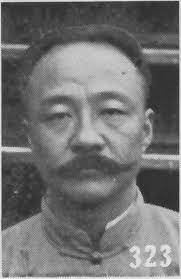Li Yuan-hung 黎元洪 T. Sung-ch'ing 宋卿 H. Huang-p'i 黃坡 Li Yuan-hung (1864-3 June 1928), the only man to serve twice as president of the republican government at Peking T(June 1916-July 1917; June 1922-June 1923). Huangp'i, north of Hankow, was the birthplace of Li Yuan-hung. His ancestors, merchants from Anhwei, had settled in Hupeh as farmers. […]










